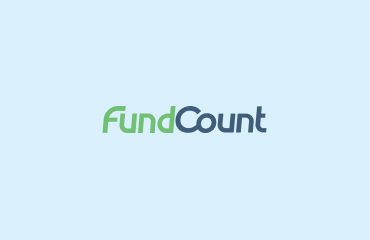Family offices manage some of the most sophisticated and complex portfolios in the financial world. With such complexity comes the need for precision and accuracy, especially in accounting and reporting. Relying on manual processes increases the risk of errors, which can lead to misguided decisions based on inaccurate information. As family offices continue to evolve, many are turning to advanced accounting software to streamline their operations, enhance reporting accuracy, and reduce the burden of manual tasks.
However, the success of accounting software is not merely about selecting the right program. The chosen system must align with the specific needs and intricacies of the family office to ensure it delivers its intended benefits. This guide outlines a comprehensive approach to choosing the right accounting software for your family office, providing practical insights to maximize your investment.
Key Takeaway:
- Accounting software for a family office must be capable of managing diverse and complex portfolios, including alternative investments, foreign currency transactions, and digital assets.
- Given the sensitivity of financial information handled by family offices, selecting software with robust data security features—whether through advanced encryption in cloud-based solutions or complete control in on-premises systems—is critical to protecting against cyber threats.
- When choosing accounting software, consider not just your current needs but also the future scalability of the system.
Step 1: Recognizing the Critical Importance of Accounting Software
Understanding the strategic importance of accounting software is the foundation of any successful selection process. The primary benefit of adopting such software is the automation of transaction processing, which not only reduces operational costs but also allows your team to focus on more strategic initiatives. In a family office, where portfolios often span multiple asset classes and geographies, the ability to automate and accurately process transactions is crucial.
Moreover, many family offices struggle with unifying different segments of their operations. For example, one team might manage real estate investments with one system, while another team oversees stock portfolios with a different tool. This disjointed approach can lead to operational silos, reducing collaboration and increasing the risk of errors. Investing in a software solution that offers a unified general ledger can bring clarity across all investment avenues, allowing for better coordination and decision-making.
Time efficiency is another significant advantage. Automated data flows provide real-time access to financial information, eliminating the need to wait until month-end for critical reports. This real-time insight empowers family offices to make informed decisions more quickly, which is particularly valuable in fast-moving markets.
Step 2: Choosing the Right Software
Selecting the appropriate accounting software is a critical decision that requires a deep understanding of your family office’s specific needs. The software should be capable of handling the complexities inherent in managing diverse portfolios, including alternative investments, multiple legal entities, and global assets.
Handling Complexity
As investment strategies become more diverse, the need for accounting software that can manage complex transactions is paramount. For example, many family offices are now involved in foreign currency hedging, cryptocurrency, and other digital assets. The chosen software must be able to handle these assets seamlessly, including tasks like converting foreign currencies into USD or automatically updating changes in fair market value. According to a recent survey, 53% of family offices have significant exposure to alternative investments, underscoring the need for a system that can manage these complexities effectively.
Ensuring Data Privacy
Data security is a growing concern for family offices, particularly as cyber threats become more sophisticated. Hackers and other malicious actors constantly seek to gain access to sensitive financial information. This makes it essential to choose accounting software with robust security features, whether it’s a cloud-based solution with advanced encryption and automatic backups or an on-premises system that allows for complete control and sole access. The decision between cloud-based and on-premises software should be informed by your specific privacy needs and risk tolerance.
Achieving Unified Operations
For many family offices, one of the biggest challenges is achieving unified operations across various investment types. Traditional tools like QuickBooks may not have the processing capabilities to manage the full spectrum of a family office’s investments. A unified general ledger system is essential, providing real-time visibility into all investments from a single platform. This unification not only facilitates better collaboration among team members but also enables more accurate and timely reporting, which is critical for making informed investment decisions.
Maximizing Automation Capabilities
Automation is a key feature of any effective accounting software. While most programs offer some level of automation, it’s important to assess the extent of these capabilities, especially in relation to the specific needs of your family office. For example, while basic automation features like bank statement imports are common, more complex needs, such as automating the processing of investment statements, require a more advanced system. Family offices can deal with dozens of investment statements each month, so the right software should significantly reduce the data entry burden, allowing your team to focus on higher-value activities.
Step 3: Considering Long-Term Scalability and Support
When selecting accounting software, it’s essential to think beyond your current needs and consider the long-term scalability of the solution. As your family office grows, your accounting software must be able to scale with you, handling increased transaction volumes, additional asset classes, and more complex reporting requirements. Choosing a system that can evolve with your organization ensures that you won’t have to go through another selection process in the near future, saving time and resources.
Support is another critical factor. The vendor’s ability to provide ongoing support, including regular updates and training, can make a significant difference in how well the software performs over time. Ensure that the software provider has a strong reputation for customer service and can offer the support needed to keep your operations running smoothly.
Step 4: Evaluating Cost-Benefit Ratios
When selecting accounting software for a family office, it’s essential to conduct a thorough cost-benefit analysis rather than focusing solely on the initial purchase price. The true value of the software lies in its ability to enhance efficiency, reduce errors, and provide actionable insights that contribute to better financial management and decision-making.
One of the key considerations in evaluating cost is the potential savings in time and labor. For example, automating complex processes such as multi-entity accounting, foreign currency conversions, and alternative investment tracking can significantly reduce the manual workload on your staff. According to industry research, automating these processes can save up to 30% of the time typically spent on manual data entry and reconciliation, translating into substantial long-term savings in labor costs.
Additionally, the reduction of errors through automation can have a direct financial impact. Errors in financial reporting or investment accounting can lead to costly mistakes, regulatory penalties, or missed investment opportunities. By investing in a system that minimizes these risks, family offices can protect their assets and ensure more reliable financial outcomes.
Moreover, the ability to generate detailed, real-time financial reports allows family offices to make more informed decisions. This can lead to improved investment performance and better alignment with the family’s long-term financial goals. For instance, a study by Gartner found that organizations using advanced financial analytics tools saw a 20% improvement in decision-making speed and accuracy, leading to better overall financial performance.
When evaluating the cost of accounting software, it’s also important to consider the long-term scalability of the solution. A system that can grow with your family office—accommodating new asset classes, increasing transaction volumes, and integrating with emerging technologies—can provide a better return on investment over time. While a more robust system may require a higher upfront investment, the long-term benefits in terms of efficiency, accuracy, and scalability often justify the cost.

Strategic Decision-Making for Optimal Outcomes
Selecting the right accounting software is not merely a technical decision but a strategic one that can significantly impact the financial management and operational efficiency of your family office. The right system will not only streamline daily operations but also provide the agility needed to adapt to evolving investment strategies and regulatory environments.
A crucial aspect to consider is how the chosen software will support the long-term goals of the family office. This includes ensuring that the software can scale with the growth of assets, accommodate new types of investments, and integrate with other financial tools and platforms. Additionally, the ability to generate comprehensive and accurate reports quickly can provide a competitive advantage, allowing for more informed decision-making in real-time.
Moreover, as cyber threats become increasingly sophisticated, the importance of robust data security cannot be overstated. The software you choose should not only protect sensitive financial data but also offer flexibility in how that data is managed, whether through cloud-based solutions or secure on-premises systems. Investing in a system that balances security, functionality, and ease of use is essential for safeguarding the family’s wealth and ensuring compliance with regulatory requirements.
Ultimately, the decision should be guided by a clear understanding of both current operational needs and future ambitions. By aligning your software choice with these goals, you position your family office to not just manage its assets effectively, but to leverage its financial data as a tool for strategic growth and sustainability.







